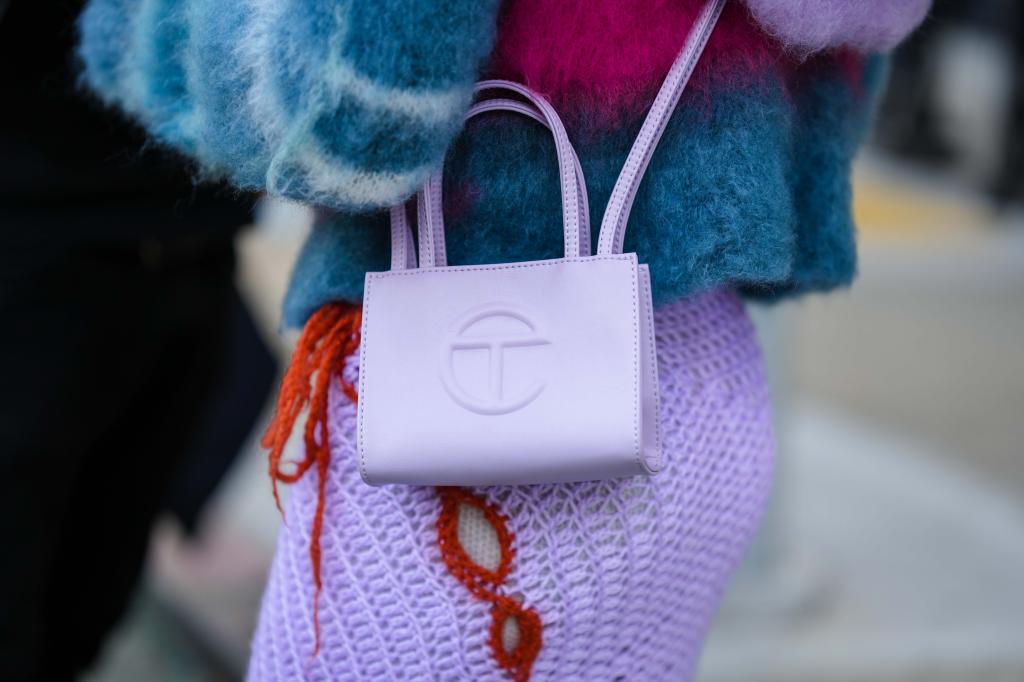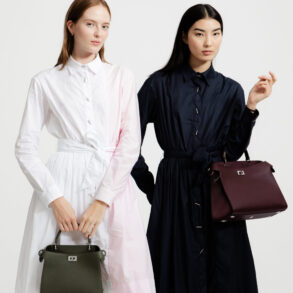
Telfar has it in the bag.
The label, known for its trademark tote, was crowned the “top performing bag” of 2023 in Rebag’s Clair report.
The fourth annual report, an acronym for the reseller’s proprietary software suite Comprehensive Luxury Appraisal Index for Resale, analyzes market data for pricing, trends and demand to determine the value of luxe goods.
Telfar, founded by Queens native Telfar Clemens, earned “a remarkable 228% average value retention,” Rebag reported, outpacing industry giant Hermes, which only retained 110% of its retail value.
The Post has contacted Telfar for comment.
Not only does Telfar beat its luxury competitors in value, but also in price; Fashionistas can snag a logo-embossed shopping bag for around $200, making it the bag “for everyone,” as the label’s tagline implies.
Made in an array of vibrant colorways and staple basics, the versatile handbag — made of vegan leather, no less — has amassed a cult following of celebrities such as Dua Lipa and Selena Gomez, and even earned a nod in Beyoncé’s hit “Summer Renaissance”: “This Telfar bag imported, Birkins, them s—ts in storage.”
But the “It” factor of the so-called “Bushwick Birkin” lies in its scarcity. Each limited edition drop sells out in a matter of seconds — the kind of demand typically reserved for the likes of the hypebeast streetwear brand Supreme or former Celine designer Phoebe Philo, for which a jaw-dropping price tag is a barrier to entry.
“Telfar has managed to be both inclusive and exclusive,” ALH Advisory founder Anne Line Hansen told Fast Company. “It’s a truly authentic approach that is hard to replicate, which is why no one can really compete with them.”
New York City influencer Ohemaa Bonsu, though, has it down to a science. Setting an alarm one minute before the label’s 9 a.m. drop with browser autofill ready to go, she can swiftly navigate the Telfar site, fill her cart and check out in 60 seconds.
“If you check out before 9:01, you’re going to get the bag,” she explained online, per Fast Company. “At 9:02, you have a chance, but it might sell out. By 9:03, forget it.”
Telfar has flipped the script in more ways than one, the most innovative being the brand’s pricing model.
In March, Telfar launched a novel way to price its coveted items: the higher the demand, the lower the cost.
The strategy, which was available for weekly drops earlier this spring, was a stark contrast from the land of luxury where high demand and limited supply equate to an outrageous price.
Each item began at wholesale cost and increased as seconds went by until the moment it sold out, meaning that the price listed at the time the product sold out became its permanent price for future drops.
According to Fast Company, a sweatshirt that might typically retail for $272 was offered for $68 and sold out at $127, which became its fixed price.
At the crux of Clemens’ vision for his eponymous brand will always be his devout clientele by way of quality, cost and community — a business model that is clearly working.
“Our investors are our customers,” Clemens told Fast Company. “I want to keep as many [corporate] people away from us as possible.”
This post was originally published on this site be sure to check out more of their content.






